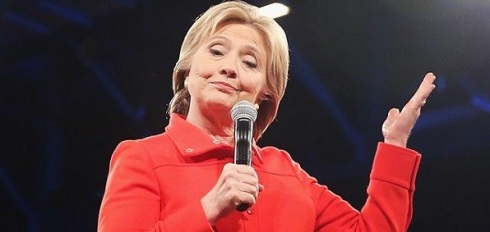Hillary Clinton’s colossal fuck-up of one of her most important political decisions of her career.
Part One: 2002
In October 2002, the United States was still reeling from attacks on September 11th. Osama bin Laden continued to evade capture and our war in Afghanistan was not going well; in fact, we were shitting the bed. Earlier that year, the Bush Administration began making its claims about Iraq, Saddam Hussein, and Weapons of Mass Destruction. The Homeland Security Color Code Warning System was proving an effective diversion, but this was a mid-term election year and more distractions were needed – a war in Iraq would prove to be the thing.
Many in the US and throughout the world knew these WMD claims to be false. But Bush and Cheney were resolute on getting rid of the man who Bush’s father could not dispose of. Even, even when top military people and other analysts were against such a horrific war.
From The Washington Post in July 2002:
Despite President Bush’s repeated bellicose statements about Iraq, many senior U.S. military officers contend that President Saddam Hussein poses no immediate threat and that the United States should continue its policy of containment rather than invade Iraq to force a change of leadership in Baghdad.
From The New York Times in August 2002:
Joseph P. Hoar, a retired Marine Corps general who was commander of American forces in the Persian Gulf after the 1991 war, was particularly skeptical of an invasion, calling it “risky” and perhaps unnecessary
…
Morton H. Halperin, a senior fellow with the Council on Foreign Relations, echoed concerns in Europe and the Middle East that the United States should use its influence to resolve the Israeli-Palestinian conflict before attacking Iraq. “Especially if there is no progress on the Palestinian issue, it is likely that an American military conquest of Iraq will lead many more people in the Arab and Muslim world to choose the path of terror,” he said.
As the vote came to the floor, the US Senate was given some classified documents regarding Iraq:
Senators Bob Graham and Patrick Leahy would later say that reading the classified version helped convince them to vote ‘no.’ And during a lunch two days before Clinton’s speech, according to Gerth and Van Natta Jr., Graham “forcefully” urged his Democratic Senate colleagues to read it.
Few did. Using logs of who entered the secure room where the classified NIE was kept, The Washington Post reported that only six senators read it. When The Hill newspaper later polled senators, 22 said they had.
Clinton has never claimed to be among them. When asked directly on Meet the Press in 2008, she sidestepped the question, declaring, “I was fully briefed by the people who wrote that.”
Would reading the classified NIE have changed Clinton’s vote? Maybe not. Even after reading the classified version, Rockefeller and Dianne Feinstein still voted to authorize war. And some intelligence analysts familiar with the classified NIE claim it was a biased, shoddy document that, like its unclassified cousin, bent over backward to prove that Iraq was pursuing WMD. Perhaps most importantly of all, Clinton’s own national-security confidantes—including Iraq expert Kenneth Pollack—believed the WMD claims. It’s hard to imagine she would have overruled them, even if the classified NIE had given her pause.
Still, Clinton’s failure to read the document means her book’s claim that she “made the best decision I could with the information I had” is probably untrue.
What makes the episode so strange is that by the time she entered the Senate, Clinton was already known for her intellectual diligence. In their biography, Gerth and Van Natta Jr. note that despite regularly getting home at 10 p.m. with a binder full of information, Clinton would still master it by breakfast the next morning. In their book on Clinton’s time in the State Department, HRC, Jonathan Allen and Amie Parnes, make a similar point.
How could someone renowned for doing her homework have failed to do so on the most important vote of her Senate career?
Part 2: The Non-Apology Apology
Here is Clinton’s “apology” from her book, Hard Choices:
“Many senators came to wish they had voted against the resolution. I was one of them,” she writes, according to CBS News, which obtained an advance copy Thursday and posted excerpts on its website.
“As the war dragged on, with every letter I sent to a family in New York who had lost a son or daughter, a father or mother, my mistake (became) more painful,” Clinton adds.
“I thought I had acted in good faith and made the best decision I could with the information I had. And I wasn’t alone in getting it wrong. But I still got it wrong. Plain and simple.”
Admitting something was a mistake is not an apology. As William Safire wrote:
The artful dodge of the impersonal apology has roots. President Ulysses S. Grant, fondly remembered by grammarians for his activist self-description, ‘I am a verb,’ appended a note to his final annual report to Congress on December 5, 1876, acknowledging the scandals that had plagued his two terms in office with the words, ‘Mistakes have been made, as all can see and I admit.’
There are lots of resources on the internet on how to apologize. Maybe Hillary should look them up.
Part 3: The Dead
American Deaths: 4,497
